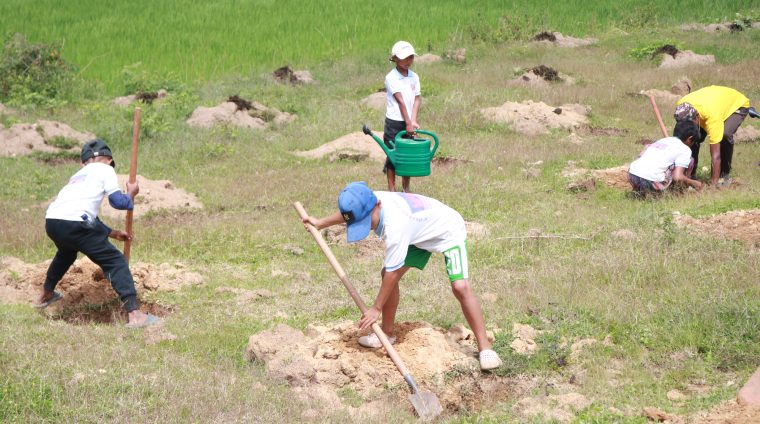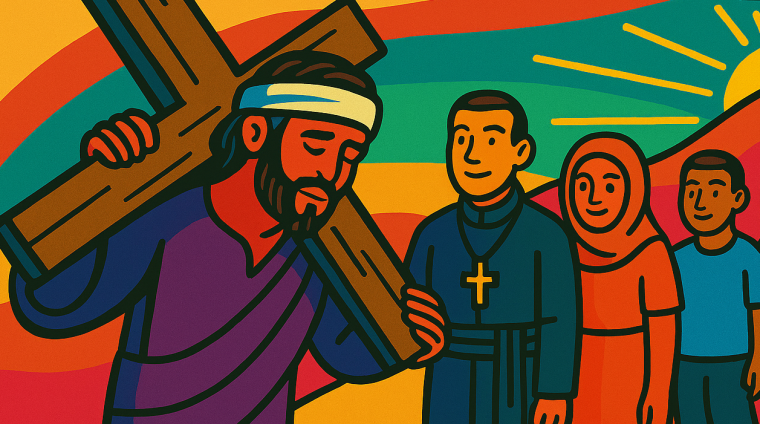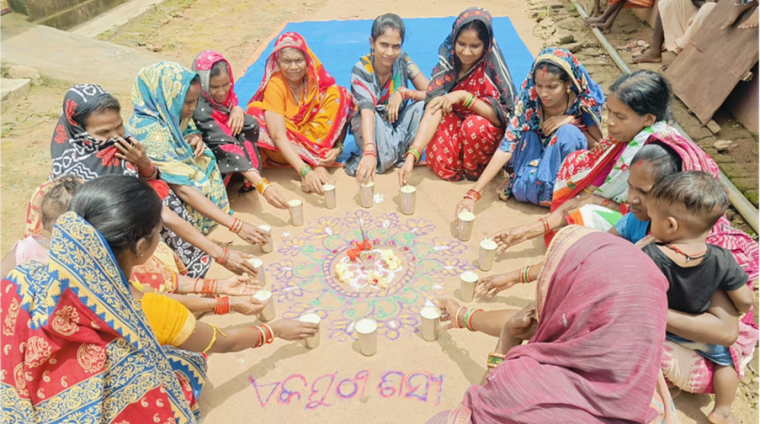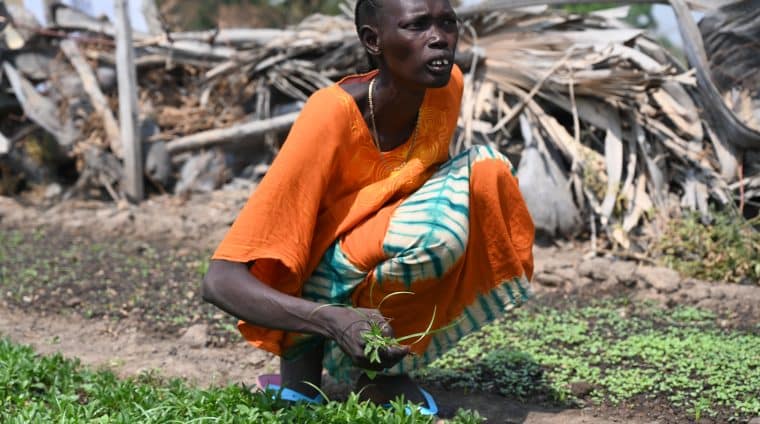This article originally appeared in The Tablet.
Stan Swamy died as an ‘undertrial’ at Holy Family Hospital, Mumbai on July 5, 2021.
In 2023, I met Arun Ferreira, Vernon Gonsalves and Anand Teltumbde in Mumbai after they were released on bail. All three were implicated in the Bhima Koregaon case, popularly known as the BK-16 or Elgar Parishad case, as there were 16 accused.
Arun Ferreira lived with Stan in the same prison cell and took care of Stan like a mother. Vernon and Anand became good friends discussing various socio-political issues.
All three had one message. ‘We never thought that Stan’s life would come to an end so soon. Despite all odds and health-related issues, he showed extraordinary willpower, which sustained him. The turning point was when the judiciary rejected his bail petition. With deep faith in the Constitution of India, he was hoping that the judiciary would be fair to him, hear his plea, release him on bail and allow him to go to Ranchi to spend his last days with Adivasi people and friends. When that dream looked far-fetched, he lost his strength”.
Till the end, his heart and soul were with Adivasis and Ranchi. It was for this reason the Jesuit provincials decided to cremate Stan’s mortal remains and carry the ashes to Jamshedpur, Ranchi and bury them.
This raises a fundamental question: what is the last resort for ordinary citizens of India and human rights defenders when they are targeted and imprisoned by the state for narrow political purposes? When the judicial system continues to delay justice under the pretext of the draconian Unlawful Activities (Prevention) Act of 1967, is not the judicial system equally culpable?
On October 8, taking Stan in a jeep to the Ranchi National Investigation Agency (NIA) Office, the NIA officials told him that he was simply being taken for questioning at the Ranchi office. A higher official would inquire about the matter.
This never happened. Instead, at the height of the COVID-19 pandemic, disregarding his age and health conditions, he was taken to Mumbai and produced before the court on October 9, 2020. The charge sheet was filed on the same day, and the judge remanded him to custody. Stan was put behind bars at the Taloja prison in Mumbai.
The law of the country is that in a criminal case when the charge sheet is filed, the trial should begin soon. If the trial has not begun, the accused has the right to bail. Stan was in prison for 268 days.
Petitions were filed in the District and the High Courts seeking bail on medical grounds, as his health was deteriorating. The courts turned a deaf ear. The judicial system was harsh on him and even refused to provide him with a sipper straw, which was confiscated by the jail authorities when Stan was taken to jail, although Stan’s hands shook because of his Parkinson’s.
The prosecution adopted a convenient strategy of delaying the trial. Nearly four years have passed since Stan’s death. Even today, there is no clue that the trial will begin anytime soon.
All these indicate that the motive of the state was to suppress dissent by any means and instill fear in their minds. Harassing and putting human rights activists behind bars is not new in India. But it has gone from bad to worse. Will the trial ever begin?

It might, but not soon. However, as per legal procedures, the trial against Stan cannot take place as he is not alive. In the judicial records, his name would remain forever as ‘accused’ and ‘undertrial’. This is absurd. The courts have the privilege and authority to sanitise the matter by clearing Stan’s name. Blessed are those judges pure in heart! One need not be surprised if the case is dumped without a trial!
Stan was ethically deep-rooted. He would often wonder how dare the State and officials speak lies and falsely implicate a citizen without any tinge of evidence.
The interrogation by the NIA officials and Stan’s response in July 2020, published as part of the book “I am not a Silent Spectator”, stands as evidence of what Stan believed in.
While at Taloja, he repeatedly made a plea to me, “You know that the materials claimed to be found in my computer are interpolated. The NIA claims that some letters were found in the folder of the Earth Summit, organised by Kolkata Jesuit province in 2015. You and I participated. Get cloned copies of my computer seized by the NIA officials and send them for forensic analysis. Let the world know the dirty tricks of the State and NIA”.
After repeated attempts, Advocate Mihir Desai managed to get an order from the court, and we got cloned copies. We sent them to the United States-based Arsenal Consulting Agency.
The Arsenal Consulting, an internationally renowned digital forensic firm, in its report, stated that digital evidence used to arrest senior human rights defender Father Stan Swamy in the Bhima-Koregaon case was planted on his computer’s hard drive.
Multiple findings linked the Indian state to this hacking of human rights defenders. Cybersecurity firm SentinelOne has previously investigated this attacker and concluded that their “activity aligns sharply with Indian state interests.”
The Arsenal report further stated, “The attacker responsible for compromising Fr. Swamy’s computer had extensive resources (including time), and it is obvious that their primary goals were surveillance and incriminating document delivery. Arsenal has effectively caught the attacker red-handed (yet again), based on remnants of their activity left behind in file system transactions, application execution data, and otherwise.”
Arsenal Consulting President Mark Spencer stated, “The scale of what happened to Fr. Swamy and some of his co-defendants, in terms of the aggressive surveillance of their electronic devices, which culminated in incriminating document deliveries over several years, is truly unprecedented.”
Stan would have loved to hear this. Unfortunately, he was no longer alive when the report was released in December 2022.
The Jesuits have filed two cases in the Mumbai High Court. One was submitted immediately after his death, demanding that the State investigate the cause of his death and the prison conditions at Taloja, implicating the State, NIA officials, and the prison authorities.
Following the release of the Arsenal report, the Jesuits filed yet another case, urging the Court to declare Stan ‘innocent’ on two grounds. First, the Arsenal report vindicates Stan’s innocence, indicating that the case was falsely fabricated. Secondly, Stan is not alive to defend himself. The Jesuits also demanded that the State pay compensation for this institutional murder as a sign of reparation which could be utilised by the Jharkhand State for the empowerment of the Adivasis.
In the last two years, the cases were listed a few times. Every time, the sitting judges either recused themselves or postponed the case from hearing under some pretext.
“The Jesuits believe that the life of Stan must remain an inspiration for future generations about the mission of the Society of Jesus”
Isn’t it shocking that so far five judges of the High Court and five judges of the Supreme Court of India have recused themselves from hearing the BK-16 case? To whom shall we go now? The Jesuits are determined to take the cases forward. Civil society and human rights organisations keep the hopes alive by recognizing and awarding Stan for his life and mission.
Father Swamy was named the recipient of the Mukundan C. Menon Award for 2020 while he was still in prison. In 2022, Stan was honoured as a mission-driven Jesuit priest and tribal rights activist posthumously with the Martin Ennals Award. Dr. Asghar Ali Engineer Lifetime Achievement Award, 2023, was conferred on Fr. Stan.
The Father Salvador Memorial Award was given by the Bombay Catholic Sabha on ‘Sabha Day 2025’. International cooperation and support continue to energise the human rights crusaders in India.
While clearing the name of Stan is important, the Jesuits believe that the life of Stan must remain an inspiration for future generations about the mission of the Society of Jesus, a faith that struggles for justice.
The provincials decided that the Jesuits would continue to stand with the BK-16. Of the 16 falsely implicated, Stan is no longer alive. Eight have got bail. Still, six are in prison, five in Taloja and Jyoti, a woman, is in Byculla prison. Our hearts go out to them and their families.
April 26 is Fr. Stan Swamy’s 88th birth anniversary. He was born in 1937 in a remote village, Viragalur, in Tamil Nadu, in a traditional Catholic family.
Stan had his schooling at St. Joseph’s Higher Secondary School, Trichy, run by the Jesuits. Inspired by the Jesuits’ life and mission, at the age of 20, he decided to join the Society of Jesus on May 30, 1957, in Madurai Jesuit Province. However, after his novitiate, listening to his inner voice, he opted to join the Jamshedpur Jesuit province, which predominantly works among the Adivasis, who are also called Tribals or Indigenous communities.
As a young scholastic, he was sent as a regent to a remote school at Lupungutu, Chaibasa, South of Jharkhand state. He had his rebirth and a new vision for life during this time. The communitarian value system of Adivasis, on the one hand, and the dehumanising systemic oppression of the Adivasis helped Stan to develop his future mission as a Jesuit, following the footsteps of his master Jesus.
He decided to offer his services for the development, rights and dignity of the Adivasis. Until his death, he was breathing this dream.
My last conversation with Stan strikingly demonstrates his vision of life. On 28 June 2021, he wanted to share with me his parting message. He said, “I am like a child. People around me, the sisters and nurses, take care of my basic needs. They feed me, dress me up, take me to the toilet, lift me to sit for a while in the cot etc.
“I have accepted these as realities of my fragile condition. However, I want to tell you something. You must take forward the struggles of the Adivasis for a dignified life. I have contributed only a small part to the journey of the Adivasis during my life. Tell the Jesuit provincials that I belong to the universal Society of Jesus. Whatever they decide about my life is fine with me.”
I accepted Stan’s parting gift in tears. I knew that I was not worthy. I thanked God for the privilege he gave me to walk with Stan, especially in the last two years of his life, as God accompanied him diligently.
In this background, a campaign has been initiated by the British Jesuit Missions to ‘clear the name of Stan’ as we remember Stan on his 88th birth anniversary on April 26.
Many international and national organisations are part of this campaign. This campaign affirms the importance of clearing the name of Stan, expressing our solidarity with the BK-16, and leaving a legacy for future generations.
This campaign aligns with the last wish of Stan, ‘Take forward the struggles of the Adivasis for a dignified life.’ This campaign exposes the state repression of Adivasis in many parts of India, especially in Bastar, Chhattisgarh.
The state and the justice system, which failed to protect the life of Stan, do have an opportunity to cleanse their blemish by declaring him ‘innocent’. Will the justice system prevail over their political masters? Clearing Stan’s name will boost the credibility and morale of the judicial system in India and strengthen citizen’s faith in the Constitution, democracy and justice.





